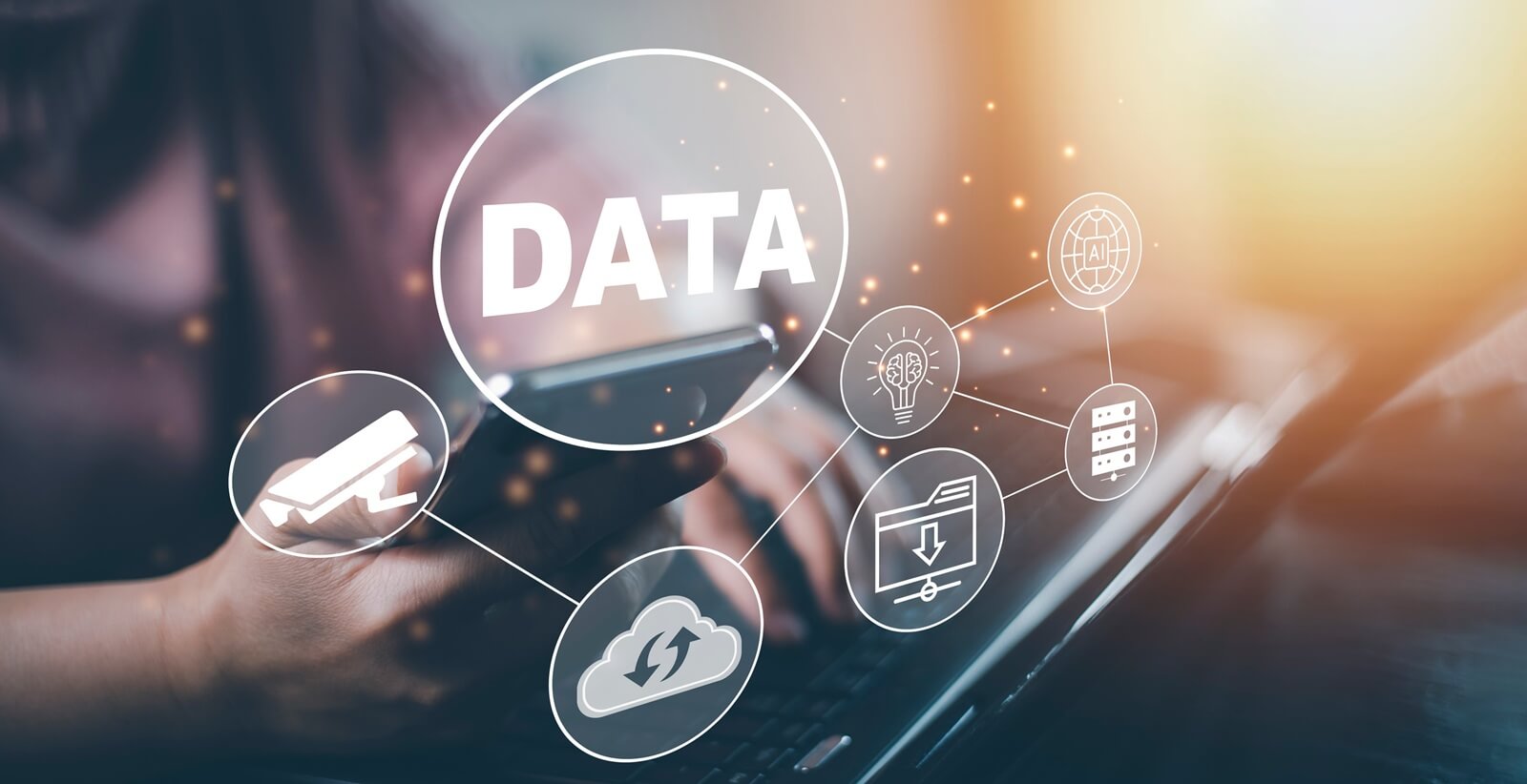Nonprofits increasingly rely on digital systems to manage volunteers, coordinate members, track donations, and maintain program records, yet many still underestimate how sensitive and valuable this information has become. Volunteer and member databases often contain personal contact details, background checks, demographic information, medical notes for safety, minors’ registration data, and sometimes even financial or identification records depending on the programs offered. Because nonprofits exist in mission-driven environments where trust forms the core of every relationship, the protection of this data directly influences the credibility, reputation, and stability of the entire organization.
Unfortunately, attackers are fully aware that nonprofits often struggle with outdated technology, limited budgets, inconsistent security practices, and a rotating set of volunteers who may not be familiar with data protection standards. Cybercriminals know that an organization holding large amounts of unprotected personal information becomes an easy and profitable target.
As ransomware groups, phishing operators, and credential thieves become more sophisticated, they increasingly target nonprofits as a fast route to valuable, exploitable data. For members and volunteers who trust organizations with their personal details, a single breach can create long-term risks such as identity theft, fraud, and privacy violations.
In addition to external threats, internal risks also grow as nonprofits expand. Inconsistent record keeping, manual data transfers, unsecured spreadsheets, and informal communication channels create opportunities for accidental exposure. Even well-meaning staff or volunteers may misplace files, use overly simple passwords, or share information through unprotected messaging platforms. These risks place nonprofits in a vulnerable position where a single mistake can lead to significant operational, financial, and reputational harm.
This evolving landscape means nonprofit compliance is no longer an optional or administrative requirement. It has become a mission-critical responsibility tied directly to the protection of volunteers, the trust of members, and the integrity of the organization’s work. As privacy laws grow more complex and cyberthreats become more sophisticated, nonprofits need practical, accessible solutions that do not require technical expertise or large budgets. This is where AI data governance becomes transformative by helping organizations detect risks early, maintain clean records automatically, and protect sensitive information consistently across every device, program, and department.

Compliance Made Understandable — What GDPR, HIPAA, and State Privacy Laws Mean for Nonprofits
Many nonprofit leaders feel overwhelmed when they hear terms like GDPR, HIPAA, CCPA, or state-level data privacy regulations. These frameworks often sound highly technical, yet their core purpose is quite simple: they exist to protect people’s personal information and ensure that organizations handle it responsibly. Understanding these regulations does not require legal expertise; nonprofits only need a clear overview of what data they collect, why they collect it, how long they keep it, how securely they store it, and who is allowed to access it.
GDPR affects nonprofits that engage with individuals located in the European Union, even if the organization itself is based elsewhere. It requires organizations to obtain clear consent, keep only relevant information, protect it with strong security practices, and allow individuals to request copies of their data or ask for it to be deleted. While the language of GDPR may appear complex, the underlying principle is straightforward: respect the person behind the data and treat their information with care.
HIPAA is relevant for health-based nonprofits, mental health organizations, crisis-response teams, and any group collecting medical or health-related details from volunteers, participants, or community members. HIPAA mandates strict controls over how sensitive health information is stored, shared, transmitted, and accessed. The goal is to prevent unauthorized disclosure and ensure that personal health details remain confidential. Many nonprofits working in healthcare outreach or emergency services fall under HIPAA without realizing the full extent of their obligations.
State privacy laws such as California’s CCPA, New York’s SHIELD Act, or Virginia’s CDPA impose additional requirements for organizations that store personal information about residents. These laws focus on transparency, consumer rights, and data protection practices. They require organizations to provide clear privacy notices, secure digital systems, and implement safeguards to prevent unauthorized access. Nonprofits serving multiple states must remain aware of these regional differences and ensure that their processes meet baseline standards of data governance.
The biggest issue nonprofits face is not the laws themselves but the challenge of applying them consistently across daily operations. Keeping volunteer and member data protected requires secure systems, clear processes, and ongoing monitoring—tasks that can feel overwhelming when organizations rely on limited staff and outdated technology. This is where AI-driven solutions significantly reduce complexity by automating compliance checks, monitoring data access, and generating audit trails that help nonprofits demonstrate responsible data management with minimal effort.
The Foundation of Nonprofit Compliance — Accuracy, Security, and Accountability
Successful nonprofit compliance is built on three essential pillars: accuracy, security, and accountability. Accuracy ensures that volunteers, donors, members, and beneficiaries are represented correctly, and that the organization does not retain outdated or unnecessary data. Accurate information also helps nonprofits maintain clean mailing lists, reliable communication channels, and credible program records. When volunteer data becomes outdated or inconsistent, organizations risk miscommunication, scheduling issues, and compliance violations.
Security is the next critical pillar. Even small nonprofits must protect their systems with strong passwords, encryption, secure storage, and role-based access controls. When data is stored on personal devices or scattered across spreadsheets, security becomes extremely difficult to maintain. Unauthorized access can happen accidentally when volunteers share login credentials or intentionally when malicious individuals target systems that lack adequate protection. Strong security practices reduce the likelihood of breaches and limit the impact if one occurs.
The third pillar, accountability, ensures that the organization documents its decisions, controls access to information, and maintains clear logs of what data is collected and why. Accountability builds trust with stakeholders, board members, and regulatory bodies. It demonstrates that the nonprofit respects privacy, protects vulnerability, and uses information responsibly. This type of record keeping also makes reporting easier when organizations apply for grants or prepare for audits.
These three pillars form the baseline for nonprofit compliance, but maintaining them manually becomes difficult as organizations grow. This is why AI data governance plays such an important role by reducing manual effort, automating routine tasks, and ensuring consistent adherence to privacy requirements across all systems and workflows. Rather than expecting staff to memorize complex laws or track changes in regulations, nonprofits can rely on AI monitoring to maintain compliance continuously and reliably.
How AI Data Governance Makes Compliance Easier and More Reliable
AI data governance transforms nonprofit compliance by automating tasks that traditionally required hours of manual effort or specialized expertise. Instead of relying on staff to enforce privacy standards or track changes in regulatory requirements, AI systems analyze data continuously, identify risks early, and ensure that records remain accurate and secure. This significantly reduces pressure on nonprofit teams and improves data protection without adding complexity.
Key Ways AI Simplifies Nonprofit Compliance
- Automated Data Checks: AI scans databases to identify outdated, duplicate, or incorrect volunteer and member records, helping organizations maintain clean, accurate information.
- Real-Time Monitoring: AI detects unusual access patterns, unauthorized logins, or suspicious behavior across systems, generating alerts before risks escalate.
- Automated Audit Trails: Every change, access, or update is logged automatically, providing detailed records for grant compliance, state regulations, and donor reporting.
- Policy Enforcement: AI monitors data retention rules and ensures that information is deleted or archived appropriately, reducing unnecessary storage risks.
- Consent Tracking: AI helps nonprofits track consent forms, agreements, and permissions required under GDPR or state laws, ensuring ongoing compliance.
- Risk Scoring: AI analyzes behavior, system performance, and data handling habits to assign risk scores, enabling nonprofits to address vulnerabilities proactively.
AI-driven compliance tools do not replace human judgment; instead, they strengthen nonprofit operations by removing hidden risks and giving teams reliable systems that function consistently.
Volunteer Data Protection: Preventing Risks Before They Escalate
Volunteer data often contains highly sensitive information that requires careful handling and strict oversight, yet many nonprofits store this information in spreadsheets, email attachments, or unsecured local folders. These practices create substantial vulnerabilities because volunteer records typically contain personal addresses, phone numbers, identification details, emergency contact information, and sometimes medical or background-check data. When this information is unprotected, organizations risk exposing volunteers to identity theft, targeted scams, or unauthorized surveillance.
Additionally, nonprofits that work with minors collect information about children and their guardians. This type of data is extremely sensitive and protected under strict privacy regulations. Improper handling of minors’ information, even unintentionally, can create legal complications and reputational damage. AI data governance helps nonprofits enforce stronger protection by automatically identifying data categories, restricting unauthorized access, and creating alerts when someone attempts to open or copy records without proper permission.

Event sign-ups, program participation logs, and volunteer onboarding systems also create a large volume of personal data. In many organizations, this information is stored across multiple platforms, making it difficult to maintain consistency or detect suspicious activity. AI technology centralizes monitoring across these systems, providing an additional layer of safety by identifying unfamiliar devices, repeated failed login attempts, or access attempts from unexpected locations. These alerts allow nonprofits to respond quickly and prevent unauthorized data exposure.
By securing volunteer and member data proactively, nonprofits uphold their ethical responsibility to protect the individuals who support their mission. Volunteers donate their time and energy because they believe in the organization’s purpose. Protecting their data is a fundamental extension of that trust, and AI-driven compliance provides the tools to meet this responsibility consistently and effectively.
Stealth Technology Group’s AI-Driven Compliance Framework for Nonprofits
Stealth Technology Group provides a comprehensive compliance framework designed specifically for nonprofits that must manage sensitive data while operating with limited budgets and small technology teams. Stealth combines cloud hosting, zero-trust access controls, encryption, and AI-driven monitoring to create a secure environment where data remains protected at every stage of the volunteer and member lifecycle. This integrated approach ensures that nonprofits can focus on mission delivery without worrying about the complexities of regulatory requirements or cybersecurity threats.
Stealth’s AI systems analyze data handling behaviors in real time to identify unusual patterns and potential vulnerabilities. This includes monitoring unauthorized access attempts, tracking file transfers, and generating instant alerts when abnormal activity occurs. These capabilities give nonprofits protection that extends beyond traditional manual security practices. With Stealth, nonprofit leaders receive detailed compliance dashboards, automated audit trails, and clear visibility into who has accessed what data and when, enabling faster decision-making and stronger governance.
One of Stealth’s most impactful capabilities is its automated policy enforcement. Instead of expecting staff to remember different data retention rules for volunteers, members, donors, or beneficiaries,we applies these rules automatically. Records approaching expiration are flagged or archived, ensuring that the organization retains only what is necessary and compliant. This reduces legal exposure and strengthens nonprofit compliance without increasing administrative burden.
Stealth also provides managed onboarding, training, and consulting to help nonprofits build secure workflows that are easy to follow and maintain. This includes organizing data storage structures, defining user permissions, and ensuring that volunteers and staff understand best practices for secure information handling.
Common Nonprofit Misconceptions About Compliance — And Why AI Solves Them
Many nonprofits hesitate to invest in compliance because they believe it is too complicated, too expensive, or relevant only to large organizations. These misconceptions often create avoidable risks that expose nonprofits to breaches, penalties, and loss of stakeholder trust. AI-driven solutions mitigate these challenges by simplifying compliance tasks and providing easy-to-use tools that fit nonprofit workflows.
Common Misconceptions and AI-Based Solutions
- “We’re small, so we’re not a target.”
In reality, smaller nonprofits are often targeted precisely because they lack security resources. AI protection levels the playing field by providing enterprise-grade monitoring at an affordable scale. - “Compliance requires technical expertise.”
AI governance reduces the need for technical knowledge by automating audits, checking permissions, and enforcing data rules without staff intervention. - “Only health or financial nonprofits need compliance.”
Any organization storing personal information must follow privacy regulations. AI helps nonprofits of all types stay compliant without additional staff. - “Manual systems work well enough.”
Manual processes cannot detect unauthorized access, monitor file transfers, or identify risks in real time, while AI can identify problems immediately and alert the organization. - “Compliance will interrupt our work.”
AI compliance tools operate quietly in the background, providing protection and monitoring without disrupting program delivery or administrative tasks.
These corrections help nonprofits understand that compliance is both achievable and necessary—and that AI provides the support needed to maintain it consistently.
Day-to-Day Examples: What AI Compliance Looks Like in Real Nonprofit Operations
AI-driven compliance does not function as an abstract concept; it affects real nonprofit operations in practical, day-to-day ways. When staff and volunteers interact with data systems, AI monitors those interactions to ensure they align with privacy requirements, security best practices, and internal policies. This creates a protective layer across the entire organization without increasing administrative burden.
Consider a volunteer onboarding process where new volunteers submit their personal information through a form. AI compliance tools validate the form, ensure encryption is applied, and check whether the data is stored in the correct category. If a staff member attempts to email the file to a personal account or store it in an unsecured folder, AI flags the action and alerts the administrator to prevent unauthorized exposure.
In fundraising systems, AI monitors donor and volunteer records for inconsistencies, duplicate entries, or missing consent documentation. This ensures that outreach efforts remain compliant with privacy laws and reduces the risk of contacting individuals who have opted out. If the organization stores financial information or uses third-party platforms, AI verifies that data transfers follow compliance requirements and remain encrypted during transmission.
During grant reporting or audits, AI-generated audit trails provide complete visibility into how data has been used and accessed. This eliminates the scramble to gather documentation manually and demonstrates the organization’s commitment to transparency and responsible data stewardship. These automated records often become invaluable during grant renewals, where funders increasingly expect nonprofits to demonstrate strong governance.
When staff travel or work remotely, AI verifies login behavior and alerts administrators if a login occurs from an unfamiliar location or device. This proactive monitoring prevents unauthorized access and helps nonprofits maintain secure operations even when staff operate outside the office. These small, everyday examples illustrate how AI transforms compliance into an ongoing, automated process rather than a manual task that staff must remember or manage independently.
Building a Culture of Protection in Mission-Driven Organizations
Compliance becomes most effective when it is embedded in the culture of the nonprofit rather than treated as an occasional task or a reactive response to emerging threats. Nonprofits excel at building community and fostering volunteer engagement, and these same skills can be applied to cultivating a culture of data protection within the organization. When staff, volunteers, and board members understand the importance of data security and privacy, they become active participants in protecting the mission.
A culture of protection begins with clear communication about why data matters—not only for compliance but for the well-being of volunteers, members, donors, and beneficiaries. Organizations can create simple guidelines to help individuals understand best practices such as using secure passwords, avoiding unencrypted email attachments, and storing documents in approved systems. Training sessions do not need to be technical; they simply need to explain the role each person plays in maintaining trust.
Leadership involvement is also essential. When executive directors, program managers, and board members demonstrate commitment to data protection, the entire organization follows. This can include regular check-ins on data governance, updates on compliance requirements, or proactive discussions about improving security practices. By treating compliance as part of ethical stewardship, nonprofits strengthen both operational reliability and external credibility.
AI compliance tools support this cultural shift by creating systems that reinforce protection automatically. Rather than relying on individuals to remember every rule, AI tools ensure that unauthorized actions are blocked, risky behavior is flagged, and data remains protected at all times. This reinforces good habits and reduces the likelihood of accidental exposure. As nonprofits continue to grow, AI becomes a dependable partner that maintains consistency, reduces risks, and empowers staff to focus on mission-driven work with greater confidence and clarity.

Summary
Nonprofits rely on volunteers, members, donors, and community participants to fulfill their missions, but the data these individuals share has become increasingly targeted by cybercriminals and increasingly regulated by privacy laws. Protecting that data is no longer optional; it is a core responsibility that supports trust, compliance, and organizational integrity. Nonprofit compliance is essential for maintaining donor confidence and safeguarding personal information, yet the complexity of GDPR, HIPAA, and state privacy laws can feel overwhelming for organizations with limited resources.
AI data governance provides a practical solution by automating compliance checks, monitoring data access, identifying risks early, and generating audit trails that simplify reporting. Volunteer data protection becomes more reliable when AI monitors activity continuously, enforces policies automatically, and reduces the likelihood of accidental exposure. Organizations benefit from consistent, safe, and efficient data practices without requiring additional staff or technical expertise.
Stealth Technology Group delivers the cloud infrastructure, AI monitoring, and compliance automation that nonprofits need to remain secure and mission-ready. With predictable pricing, real-time monitoring, secure hosting, and ongoing support, Stealth helps nonprofits modernize their systems without disruption. Volunteers, members, and staff gain confidence knowing their information is protected, and organizations can focus on delivering meaningful community impact.
If your nonprofit is ready to build a stronger, safer, and more compliant data foundation, Stealth is ready to support your transformation every step of the way. Call (617) 903-5559 or visit the contact us page to schedule your compliance consultation.


